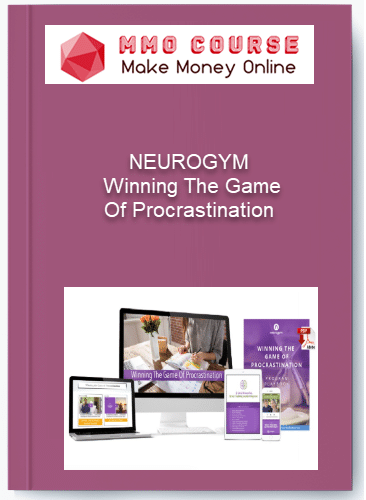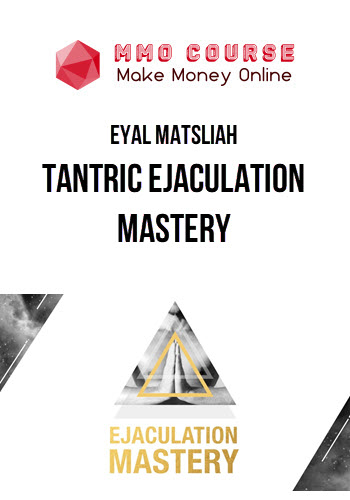NEUROGYM – Winning The Game Of Procrastination
$297.00 $31.96
Total Sold: 1
GB Status : Instant Deliver
Sales Page: https://www.myneurogym.com/procrastination/earlyaccess/
Description
Here’s What’s Included:
The sun is dwindling and you’re thinking of ending your day. You shut down your computer, turn off the light, and leave your office with a sigh… that big task will just have to wait for tomorrow.
If you’re inclined to put things off for tomorrow that you could do today… you just may have a problem with procrastination.
You aren’t alone.
Everyone procrastinates from time to time. 88% of the workforce admit that they procrastinate at least one hour a day (and quite often much more!) But just because procrastination is a universal issue, that doesn’t mean it isn’t a major problem.
Procrastination goes beyond work, and can interfere with a number of areas in your life:
Not dealing with a car repair can lead to bigger more expensive repairs.
Putting off a difficult conversation prolongs the conflict and the low level stress feelings of needing to have the conversation.
Failing to save for retirement can lead to being a burden on your children.
Avoiding making a career shift can result in feelings of worthlessness or failure; and
Not taking action on your dreams can lead to a life of disappointment and mediocrity.
In fact, a University of Calgary study shows that procrastinators perform more poorly than their less-likely to procrastinate counterparts… which you’d expect. However, they also are more likely to feel unhappy, waste money on taxes and other expenses, suffer from medical issues related to neglect, and put off important financial decisions like investing and saving for retirement. All of these things have a major impact on your life.
Before we can dig into the cause of procrastination, as well as the solution to the epidemic, it’s helpful for you to identify the activities that you’re likely to do when you’re procrastinating.
Procrastination Isn’t Caused By A Lack Of Discipline
Now, it’s a commonly held view that if you procrastinate, you just didn’t manage your time well. Or that you’re lazy, undisciplined, unmotivated or distracted. Many even think that procrastination is a problem with your willpower.
But in reality, procrastination isn’t any of those. It’s really an emotional issue.
Sometimes our brain uses procrastination as a helpful tool. It’s an involuntary, subconscious protection trigger to help you avoid dealing with a potentially painful or uncomfortable experience.
Whether you’re consciously procrastinating, or unconsciously avoiding an emotion… the results are the same. The damage from procrastination doesn’t just stop with blowing a few deadlines and disappointing yourself and others.
Procrastination is when you consciously or unconsciously delay a required action or deadline, despite the fact that this delay is harmful towards achieving your goals.
Why Do We Knowingly Or Unknowingly Continue The Spiral Caused By Procrastination?
Well, based on the latest brain research, 95% of the time, people procrastinate to avoid certain emotions and feelings.
Procrastination is a coping strategy to help us deal with emotions we aren’t ready to face or simply, we do not know how to deal with them.
Since your brain is focused on what is happening right now, it automatically sends messages to you to avoid and move away from any situation that causes even the slightest emotional anxiety or stress… even if it results in greater anxious feelings and even more stress later.
And the real kicker is, procrastination hurts you in more than one way. By procrastinating you’re not only
avoiding negative emotions now in exchange for potentially greater ones later… you’re also
depriving yourself of the positive emotions and feelings that come from accomplishment, success and a job well done.
So in fact, you’re increasing the negative experiences in your life and decreasing the positive ones… yet you still do it. How many times have you pursued short term pleasure to avoid short term discomfort?
The Solution to Your Procrastination Problem is Surprisingly Simple
Knowing that procrastination isn’t a time management problem, but rather an emotional and mindset issue, should set off some ah-has.
This is the reason all of your efforts to crush the procrastination habit in the past haven’t worked. Making lists, developing discipline, buying new planners and organizers, setting timers and checklists all fail because they don’t address the root cause of procrastination.
Real, lasting change comes from retraining your brain to deal with those negative or disempowering emotions and feelings before your procrastination even starts.
It all comes down to neuroplasticity…
It’s a big word, but a simple concept: neuroplasticity is the brain’s ability to change itself through new neural connections, based on repeated actions.
Scientists used to believe the brain became “hard-wired” after just 2-3 years of life. Now, we know that isn’t true: the brain can change its structure based on how you use it — basically, the brain is just another muscle you can work out and mold.
Think about it this way: when you hear the word “cow,” “milk” probably springs to mind. The word “cherry” likely does not. But if you were to repeat the words cow and cherry together every day, the two will quickly become linked in your mind.
And your brain can do that for all kinds of connections, as long as you utilize techniques that target a particular goal. Stroke patients have used specialized neuroplasticity techniques to recover from partial paralysis. Meditators have grown their grey matter and shrunk their amygdalas just by being mindful.
And you can rewire your brain to stop procrastinating using neuroplasticity… precisely, using Inncercises.™
Delivery Policy
When will I receive my course?
You will receive a link to download your course immediately or within 1 to 21 days. It depends on the product you buy, so please read the short description of the product carefully before making a purchase.
How is my course delivered?
We share courses through Google Drive, so once your order is complete, you'll receive an invitation to view the course in your email.
To avoid any delay in delivery, please provide a Google mail and enter your email address correctly in the Checkout Page.
In case you submit a wrong email address, please contact us to resend the course to the correct email.
How do I check status of my order?
Please log in to MMOCourse account then go to Order Page. You will find all your orders includes number, date, status and total price.
If the status is Processing: Your course is being uploaded. Please be patient and wait for us to complete your order. If your order has multiple courses and one of them has not been updated with the download link, the status of the order is also Processing.
If the status is Completed: Your course is ready for immediate download. Click "VIEW" to view details and download the course.
Where can I find my course?
Once your order is complete, a link to download the course will automatically be sent to your email.
You can also get the download link by logging into your mmocourse.hk account then going to Downloads Page.










